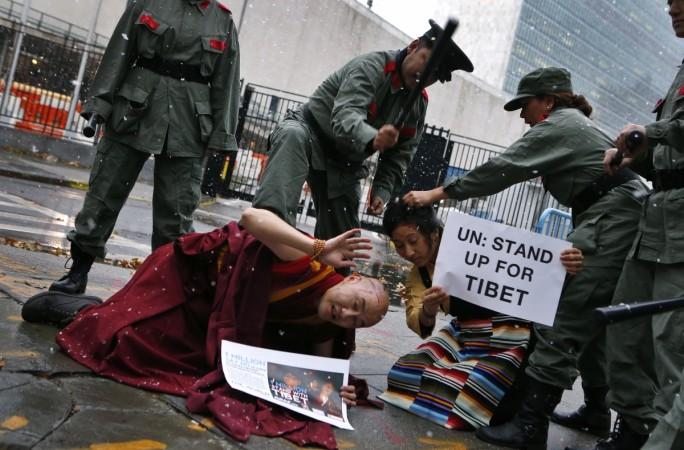
Former foreign secretary Lalit Mansingh on Saturday said India needs to be "more assertive" about its concerns regarding developments in Tibet and raise the issue with the Chinese.
Mansingh, addressing a talk on the occasion of the 80th birthday of the Dalai Lama, said it was his personal view. "I do believe that we need to be more assertive about our concern about the Tibetans and their fate," he said.
He said the Tibetans have "preserved for us the precious part of our heritage (Buddhism) which we have now got back. It's time we need to pay back the huge debt that we owe them".
Mansingh, who is an admirer of the Tibetan spiritual leader and held several interactions with him, said there was "nothing in India's foreign policy that says we cannot express concern for the rights or fundamental rights of people who are oppressed".
He cited Mahatma Gandhi writing to President Roosevelt about the rights of blacks, of India sending troops to Sri Lanka, of India taking up the cause of Fiji in the Commonwealth and also taking the lead in the fight against apartheid in South Africa.
"Let us not imagine that we are somewhat restrained in expressing our emotions and views on oppression on these people. I think India should have done better. Jawaharlal Nehru had accepted the fact and said, 'I failed Tibet. I failed to protect Tibet'. It requires a big man to accept that we didn't succeed."
"No matter what happens, India should take note of what is happening in Tibet and raise the issue with the Chinese during bilateral discussions," he said, to loud applause in the audience at the India International Centre here.
He also said changes were taking place in China with more and more Chinese beginning to practice Buddhism and many going to meet with the Dalai Lama during their tours abroad.
"He (Dalai Lama) foresees in his optimism that at some stage the Chinese will grant the Tibetans the cultural, religious and human rights they are entitled to within the sovereignty of China," Mansingh said.
Former foreign secretary Shyam Saran said that during his unofficial conversations with the Chinese, the Chinese feel that the Dalai Lama was "like a perishable commodity" and that the Tibetan issue will resolve itself once the spiritual leader is dead.
"I want to point out that they are gravely mistaken in this," he said.
Saran also said there was a change taking place in China with many Chinese coming to listen to the discourses of the Dalai Lama.

















